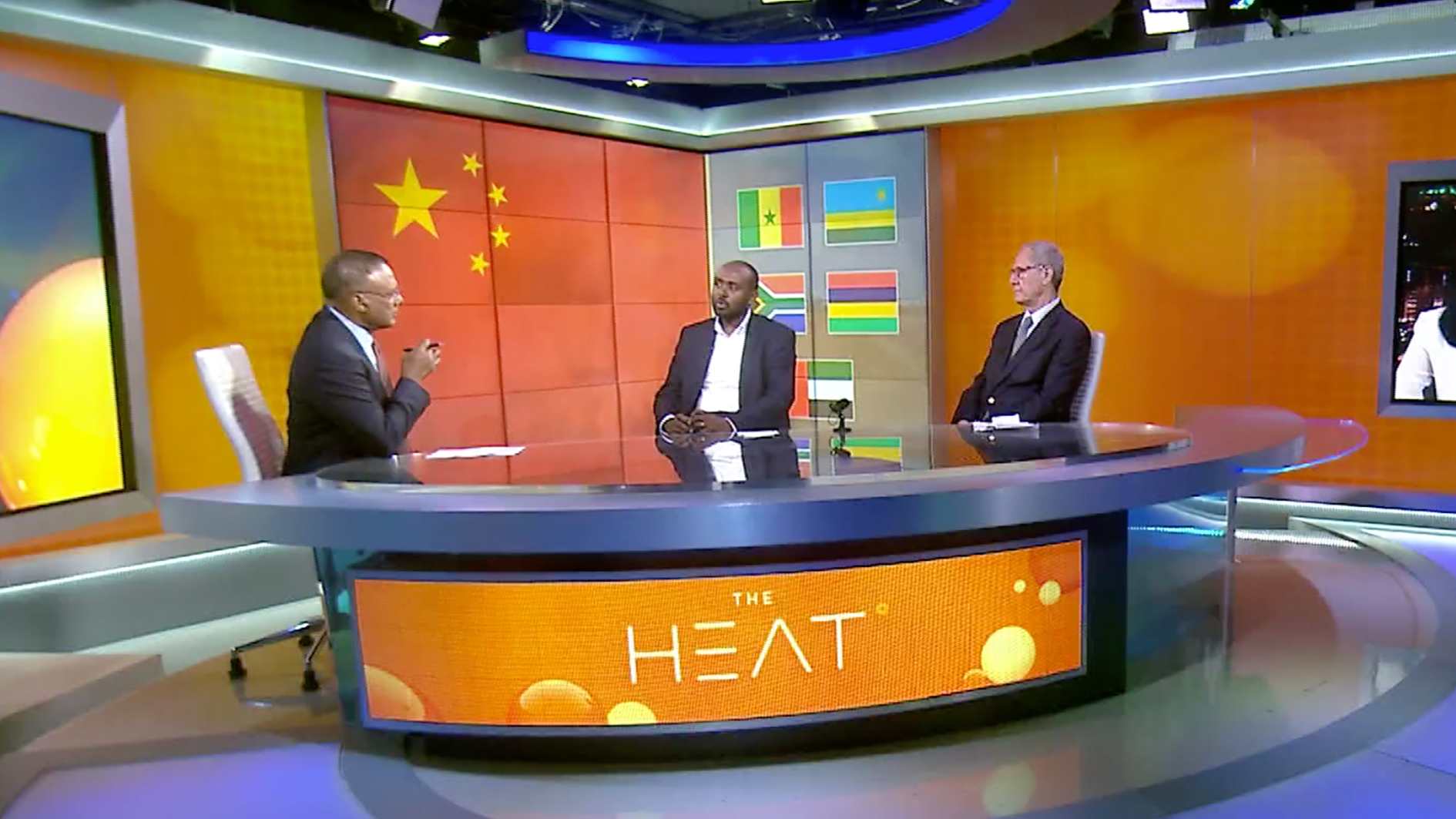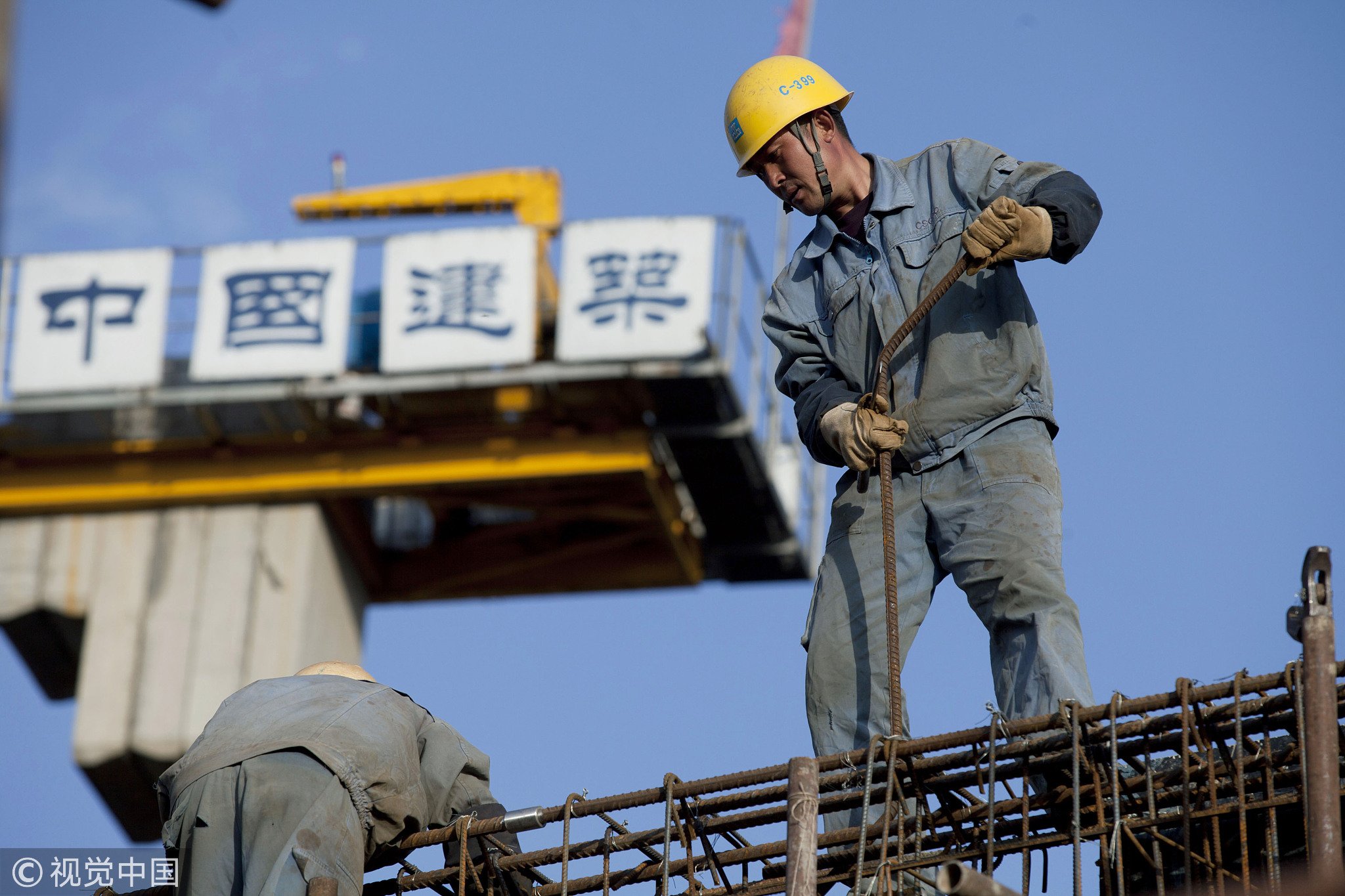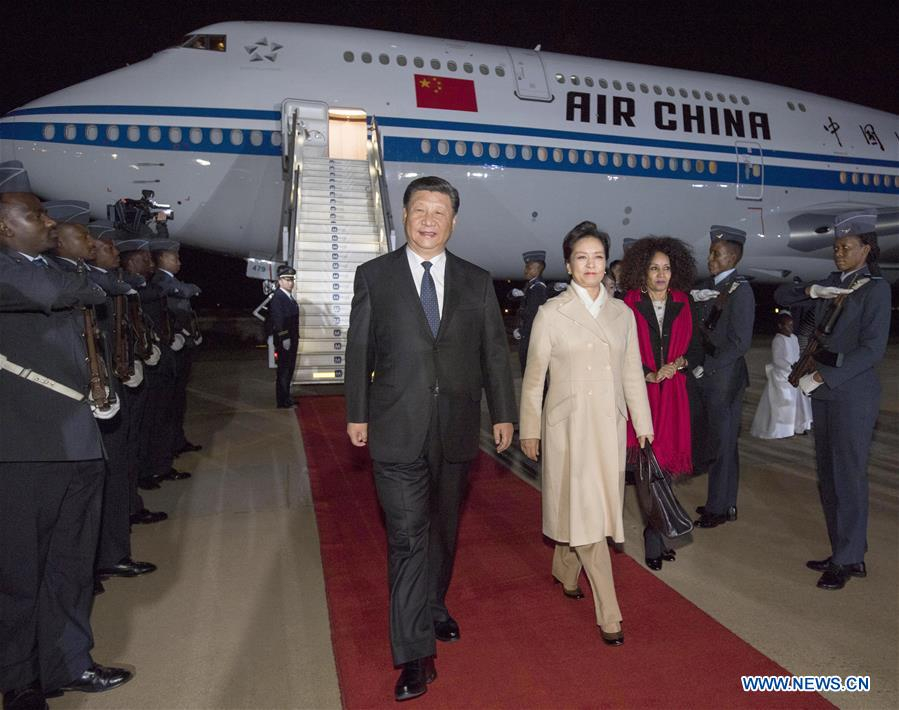
Opinions
10:35, 25-Jul-2018
The Heat: Africa: An opportunity for China
Updated
09:41, 28-Jul-2018
CGTN's The Heat
01:21

Chinese President Xi Jinping visited Senegal and Rwanda and is in South Africa before attending this week’s BRICS summit. This is Xi’s fourth visit to Africa in five years and the first overseas trip of his second term as China’s leader.
Many African leaders are eager to greet the Chinese president as the promise of Chinese investment means access and opportunity for their people. On the other hand, China also looks forward to further developing relations with the continent.
Chen Chenchen, the Macro Research Department deputy director of the Chongyang Institute for Financial Studies, said there is a consensus among Africa experts in China that those who embrace Africa embrace the future. Looking at recent statistics, African economies are among the most stable growing economies, and President Xi is seeing the potential of this rising continent.
“They are not enjoying just the economic vigor, but we are witnessing the emergence of a group of countries with national confidence,” Chen said. “Considering all these elements, I would say these new lands of opportunities are the destinations of investment, (and they) are the target of not just China, but also all other global partners.”
During Xi’s first visit to Africa in 2013, he said China and Africa have a “shared future." Abdullahi Boru Halakhe, a security and policy analyst focusing on Africa, said that for a very long time, Africa has been treated as a troubled land, but China is changing that perspective.
“What China has come and brought to the table is that Africa is not a problem to be solved, and it is an opportunity that can be shared collectively,” Halakhe said. “When China comes, it doesn’t come with a tremendous amount of conditionality to these countries. It is building roads, bridges, airports and power, so for the tremendous amount of Africans, this is an opportunity to ride.”

Chinese companies are investing and working all over Africa. / VCG Photo
Chinese companies are investing and working all over Africa. / VCG Photo
In the past few years, the Belt and Road Initiative proposed by the Chinese government in 2013 has been constantly bolstering the ties between Africa and China through cooperative projects.
Alexander Demissie, the founding director of the China Africa Advisory, said China and Africa have been cooperating for 18 years and this trip has taken him to West Africa to develop further trade relations. During the visit, Senegal became the first African country on the Atlantic coast to sign up to the BRI.
“This is the first time that we see it, especially with visiting Senegal,” Demissie said. “We see now a directional match where we had Egypt in the north, South Arica in the south, then Ethiopia in the east, and now we have Senegal. China has been now represented in all four corners of Africa.”
While many African leaders welcome the economic partnership, some critics warn that China’s involvement on the continent is a modern form of colonialism. They claim that China is getting these countries to take on too much debt, draining African resources.
Chen disagreed with that, saying the debt in Africa can date back to the 20th century when African nations raised huge funds from western financial institutions, but they are suffering unfair trade with western powers.

July 23, 2018: Chinese President Xi Jinping arrives in Pretoria for a state visit to South Africa. Xi and his wife, Peng Liyuan, were greeted by high-ranking South African government officials at the airport. /Xinhua News
July 23, 2018: Chinese President Xi Jinping arrives in Pretoria for a state visit to South Africa. Xi and his wife, Peng Liyuan, were greeted by high-ranking South African government officials at the airport. /Xinhua News
However, what China is doing right now is different – it is respecting African partners’ rights to make their decisions when negotiating. It is also respecting the mutual benefits and equality.
“The local council should be guaranteed with this independent decision-making,” Chen said. “They have to stimulate the internal vigor from inside. That’s the only way out, and that’s exactly the China approach on the African continent. When you look into the BRI projects between China and Africa, you can see the independent rounds and rounds of negotiations.”
Also in terms of the debt issue, Demissie added that it is important to keep an eye on where the money from China ends up going. If the money taken from China is spent on non-productive assets, the debt will continue negatively into the long run, but as a matter of fact, most African countries are spending it safely on productive sectors.
The 2018 BRICS summit in South Africa is around the corner. It comes at a time when the United States has adopted a position of "America First" and the trade war is escalating. Demissie said that for China, multilateral forums like BRICS are critical in this climate.
“China needs an open environment and open multilateral system that supports trade,” Demissie said. “I think the upcoming BRICS summit will be crucial, also to show America that the open system can be functional. It can be used to showcase to the outside world that these countries are capable of reacting to unilateral moves coming from the US or other countries in the world.”
The Heat with Anand Naidoo is a 30-minute political talk show on CGTN. It airs weekdays at 7:00 a.m. BJT and 7:00 p.m. Eastern in the United States.

SITEMAP
Copyright © 2018 CGTN. Beijing ICP prepared NO.16065310-3
Copyright © 2018 CGTN. Beijing ICP prepared NO.16065310-3